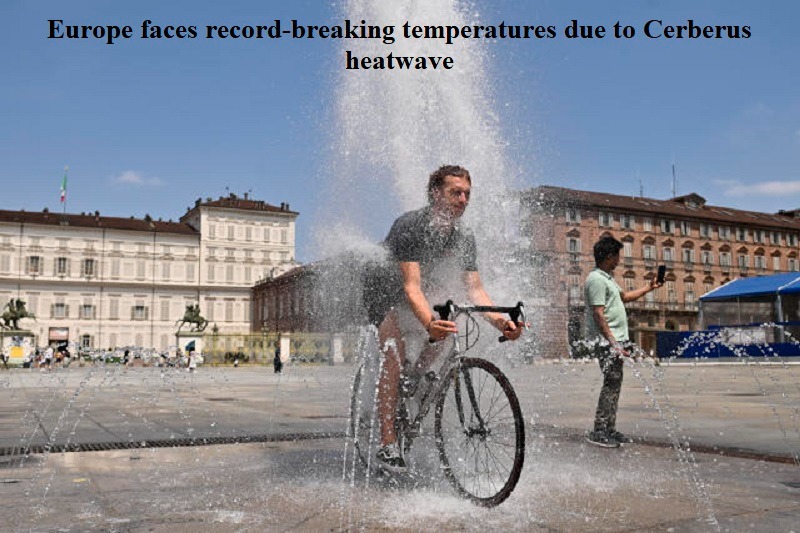
Europe is currently grappling with unprecedented heatwaves caused by the relentless Cerberus heatwave, which shows no signs of relenting. According to reports from Sunday (July 16), southern and eastern parts of Europe will continue to endure scorching temperatures. Italy, Spain, and Greece have been experiencing high temperatures for several days, while Croatia, France, and Turkey could also face temperatures around 40°C, as stated in a report by Euronews.green.
The European Space Agency (ESA) is closely monitoring Cerberus and had previously warned that the heatwave would extend to parts of northern Europe. The Euronews.green report highlights that Europe has been experiencing extreme temperatures this year due to the El Nino weather pattern. However, the current surge in temperatures is attributed to the Cerberus heatwave, named after the mythological creature. This heatwave, driven by Cerberus, is anticipated to persist in the Mediterranean region for approximately two weeks.
Italy’s health ministry issued a red alert for 16 cities, including Rome and Bologna, for the weekend. A BBC report on Sunday mentioned that the heatwave is expected to continue into the following week, with temperatures potentially reaching 48°C in Sardinia. Although this would fall short of the European record high of 48.8°C recorded in Sicily in August 2021.
The Italian weather service identified Sardinia as the epicenter of the upcoming heatwave. Italian meteorologist Giulio Betti, speaking to the BBC, predicted that temperatures would peak between July 19 and 23, not only in Italy but also in Greece, Turkey, and the Balkans. Betti added that several local heat records within these areas may be broken during this period.
Spain’s weather service warned that southeastern areas of the Iberian Peninsula could potentially experience temperatures of up to 45°C, prompting an alert for extreme heat. In Greece, the Euronews.green report indicated that certain regions may face temperatures as high as 44°C. Authorities have implemented measures such as banning access to nature reserves and forests to mitigate the risk of wildfires, while municipalities have opened air-conditioned spaces in public buildings for people to seek refuge from the heat.
Spain’s weather service mentioned that temperatures are expected to decrease on Wednesday with the arrival of cool winds from the north and east. Additionally, a report by Sky News on Saturday stated that although some relief is expected in the coming days for the Iberian Peninsula, other European countries will continue to experience sweltering conditions throughout the weekend.

Post Your Comments